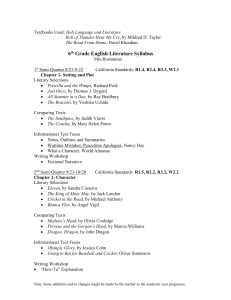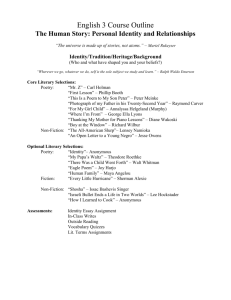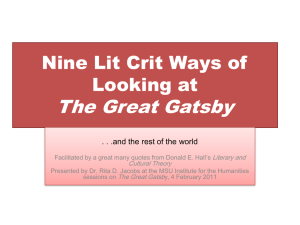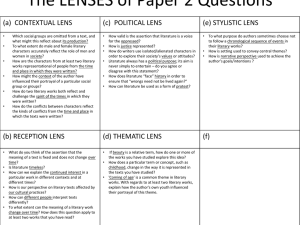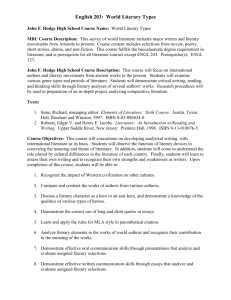sample 241 syllabus #3
advertisement
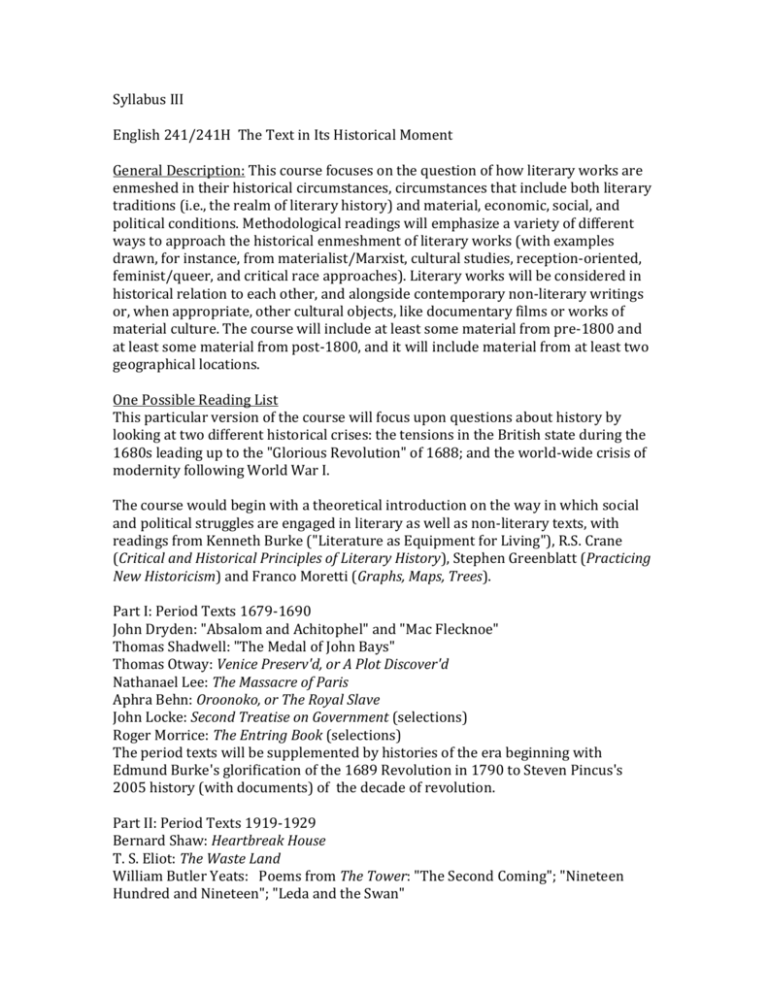
Syllabus III English 241/241H The Text in Its Historical Moment General Description: This course focuses on the question of how literary works are enmeshed in their historical circumstances, circumstances that include both literary traditions (i.e., the realm of literary history) and material, economic, social, and political conditions. Methodological readings will emphasize a variety of different ways to approach the historical enmeshment of literary works (with examples drawn, for instance, from materialist/Marxist, cultural studies, reception-oriented, feminist/queer, and critical race approaches). Literary works will be considered in historical relation to each other, and alongside contemporary non-literary writings or, when appropriate, other cultural objects, like documentary films or works of material culture. The course will include at least some material from pre-1800 and at least some material from post-1800, and it will include material from at least two geographical locations. One Possible Reading List This particular version of the course will focus upon questions about history by looking at two different historical crises: the tensions in the British state during the 1680s leading up to the "Glorious Revolution" of 1688; and the world-wide crisis of modernity following World War I. The course would begin with a theoretical introduction on the way in which social and political struggles are engaged in literary as well as non-literary texts, with readings from Kenneth Burke ("Literature as Equipment for Living"), R.S. Crane (Critical and Historical Principles of Literary History), Stephen Greenblatt (Practicing New Historicism) and Franco Moretti (Graphs, Maps, Trees). Part I: Period Texts 1679-1690 John Dryden: "Absalom and Achitophel" and "Mac Flecknoe" Thomas Shadwell: "The Medal of John Bays" Thomas Otway: Venice Preserv'd, or A Plot Discover'd Nathanael Lee: The Massacre of Paris Aphra Behn: Oroonoko, or The Royal Slave John Locke: Second Treatise on Government (selections) Roger Morrice: The Entring Book (selections) The period texts will be supplemented by histories of the era beginning with Edmund Burke's glorification of the 1689 Revolution in 1790 to Steven Pincus's 2005 history (with documents) of the decade of revolution. Part II: Period Texts 1919-1929 Bernard Shaw: Heartbreak House T. S. Eliot: The Waste Land William Butler Yeats: Poems from The Tower: "The Second Coming"; "Nineteen Hundred and Nineteen"; "Leda and the Swan" Virginia Woolf: To the Lighthouse Ernest Hemingway: The Sun Also Rises F. Scott Fitzgerald: The Great Gatsby Claude McKay: Home to Harlem Selections from Chris Baldick: Writers Among the Ruins: Literature in the 1920s David Ayers: English Literature of the 1920s Ernest Hemingway: The Sun Also Rises F. Scott Fitzgerald: The Great Gatsby Claude McKay: Home to Harlem Selections from Chris Baldick: Writers Among the Ruins: Literature in the 1920s David Ayers: English Literature of the 1920s Assignments Two 4-6 page essays An in-class midterm examination (short answer and essay format) An in-class final examination (short answer and essay format)


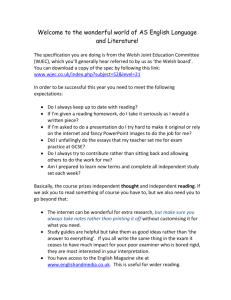


![Literature Option [doc] - Department of French and Italian](http://s3.studylib.net/store/data/006916848_1-f8194c2266edb737cddebfb8fa0250f1-300x300.png)
